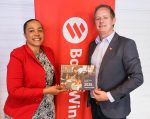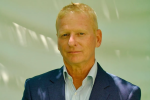Bornventure Mbidzo, acting CEO of the Namibia Tourism Board has said that people must come to Namibia as tourists and fall in love with country before they’re willing to do business there.
Owing to this, Mbidzo said these people which could be investors will find the need to invest in Namibia’s hospitality.
“Only then will they say, ‘Ok, I will invest in Namibia, not in South Africa,’” he said during a panel on the first day of the Africa Hospitality Investment Forum hosted in Namibia’s capital Windhoek last week.
Mbidzo added Namibia’s financial policy allows for the repatriation of profits and the country has a favorable tax regime for international firms.
Ram Lokan, principal of investment at South Africa-based Kasada Capital Management, said as a private investor, his top criteria is a market’s macroeconomic environment. Growing that infrastructure is paramount to investors’ decisions to develop hotels and inject capital.
“We ask, is the country open to business?” he said.
Lokan pointed to Namibia’s transparency and growth potential as a market, but it’s still difficult to make investments pan out in developing markets.
“We have to push to get that conversation out there as the country does not dominate the region,” he said.
Kasada owns the dual-brand Mercure Windhoek and Mövenpick Windhoek, which opened earlier this year.
But on a personal note, Lokan’s connection to Namibia began before Kasada’s expansion to the country.
“I came on my honeymoon here before I invested,” he said.
For now, flying to Namibia is a major undertaking, said Peter Greenberg, travel editor of CBS News, who moderated the panel. Limited airlift is not a unique problem throughout a majority of African nations, though there are ways to improve the travel experience.
Namibia does not require visitors to have a visa when arriving from many countries, and this is something that other African countries have promoted, Greenberg said.
“Kenya has opened up visa-free travel, and it is a critical point. The U.S. is a market that is concentrated on, but the airlift from there is long, and the time difference is notable. From most of Europe, the flight, too, is long, but there is no jet lag,” Greenberg said. “These points allow us to grow the pie, but there are a lot of countries fighting for the same slices. The winner will be the countries that fix their airlift. We see Namibia at the forefront, but, yes, there is more it can do.”
Some African markets that have seen spurts of travel demand over the years have already lost some airlift, Greenberg said.
“The Cape Verde Islands is a ghost town, as South African Airlines does not stop there now to refuel. Rwanda [has added flights], and they priced themselves high. The question is, how high can you price yourself before you put yourself out of business?” he said.
Peter-Hain Kazapua, founding CEO of Uakii Wilderness Safaris, said there is always a market for authenticity in tourism. He added any market that manages to obtain that authenticity then has pricing power.
But what’s missing in many parts of Africa is an investment in proper lodges, Kazapua said. The travelers that do reach Namibia and other remote African countries are typically older but still adventurous. In other words, they want to see Africa’s scenery and wildlife but require a higher level of comfort.
Add in the fact that the average length of stay in Namibia is 22 days, which not every traveler can afford to schedule. But there’s plenty of opportunity for the local hotel and tourism industry to flourish with travelers staying for extended periods.
Mbidzo said Namibia and investors need to align hospitality investments based on target audiences’ requirements with community investment.
Windhoek has seen a notable increase in population over the last decade, but it is not the principal tourism destination by far, although it is the entry point.
Investors in emerging markets such as Windhoek also want diverse demand drivers, Lokan said. For instance, there’s plenty of work needed to build the city’s status as a place to host meetings, incentives, conventions and expositions, and to woo business travelers.
“Occupancy here is in the high 40%, compared with Europe in the 80%,” he said.
Gitta Paetzold, CEO of the Hospitality Association of Namibia, said work is being done to better market Namibia and sell its story.
Paetzold said Namibian officials talk of “conscious and conservancy tourism,” which Mbidzo agreed is crucial.
“If you understand the process, you value the product,” Mbidzo said.
“We do see ourselves as an elite product as we price ourselves higher than South Africa, but we need to have value for money,” Paetzold added.
Mbidzo said that investment in the north of the country, which features Etosha National Park — the country’s premier wildlife destination — has not attracted a significant level of visitors. Northern Namibia also has the highest concentration of Namibians.
Additional reporting by Hotel News Now.










